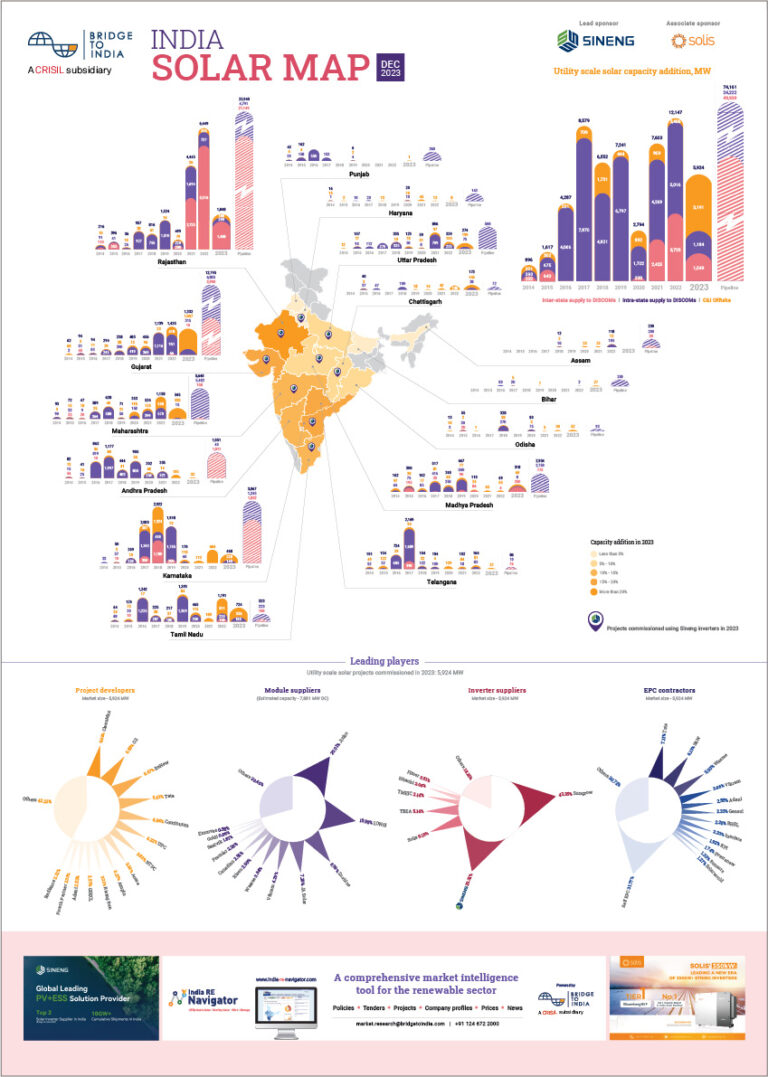Indian states are turning their back on rooftop solar. Maharashtra recently signalled its intent to join Uttar Pradesh, Rajasthan and Tamil Nadu in proposing to withdraw net metering benefit from most consumers. These four states together constitute 45% of installed rooftop solar capacity in India.
Maharashtra has proposed to limit net metering benefits to only 300 kWh per month for residential consumers. All other consumers would be eligible only for gross metering, whereby entire rooftop solar power output would be bought by the DISCOM at the Maharashtra Electricity Regulatory Commission (MERC)-approved generic tariff (currently, INR 3.79/ kWh). MERC has gone one step further and proposed that all consumers installing behind-the-meter renewable power plants may be levied an additional fixed/ demand charge or any other charge at a ‘justified’ request of DISCOMs.
Figure: Rooftop solar installation capacity by state

Source: BRIDGE TO INDIA research Note: This chart shows share of states in total installed rooftop solar capacity across all consumer categories except residential consumers (3,685 MW as on 31 March 2019).
As net metering benefits have been withdrawn in other states, C&I consumers have preferred to switch to standalone behind-the-meter systems, although with considerably reduced system sizes. MERC’s proposal to levy additional charges on such consumers, however, puts a critical question mark on prospects for the entire market. Residential consumers would also find the changes completely unagreeable.
Globally, many countries have tended to shift away from net metering after their rooftop solar markets attained a certain level of maturity. However, the timing of such moves in India is hard to understand as rooftop solar accounts for less than 1% of total power output in the country. The DISCOMs and state agencies are blinded by their financial troubles and acting in their short-term interest. Unfortunately, the central government seems to have limited ability to influence state policies.
Abrupt policy changes with no grandfathering protection for existing installations are creating previously unforeseen levels of policy uncertainty. The market, otherwise enjoying rapid growth due to falling system costs, higher consumer awareness and environmental benefits, is likely to be hit hard. The fear is that herd behaviour by other states could threaten rooftop solar prospects across the country.












